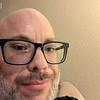Take a photo of a barcode or cover
I love books about pop culture. I love books about movies. I have a soft spot for horror films.
Read the rest of my review here
Read the rest of my review here
A fascinating book on the history of the most famous (and I think best) time in the history of Horror. A very interesting read and an absolute essential for anyone who's a fan of Horror movies.
An enjoyable read, though there's not much that fans or students of the history of horror won't already have heard before.
A thorough, incisive discussion of what the author calls "The New Horror," the effectiveness of this book will depend largely upon the reader's interest in horror movies. For this horror fan, it was a fascinating read that establishes Roman Polanski's Rosemary's Baby as the birth (pun entirely intended) of the modern horror movie and then makes the case that the development of the genre in the 1970's was due to the brilliance of a handful of directors and writers who were every bit as visionary as more-lauded directors from the era like Scorsese, Spielberg, and Coppola. Each chapter explores the genesis and production of a single movie that the author feels is crucial to the New Horror, and then follows up with an a short analysis of the film's strengths and weaknesses. It's hard to argue with his choices: Rosemary's Baby (Polanski), Night of the Living Dead (Romero), Dark Star (Carpenter, with an assist by O'Bannon), The Last House on the Left (Craven), The Exorcist (Friedkin), The Texas Chain Saw Massacre (Hooper), Carrie (de Palma), Halloween (Carpenter again; author Zinoman clearly situates Carpenter as the most important director of the era), and Alien (Scott, with another assist by O'Bannon). It's certainly not all-encompassing, but the book is a must-read for fans of the genre.
My only compalint is that it builds and builds and once it hits the early 80's it does a mad dash through the next 30 years of horror. WTF
A quick read that I found particularly informative about Dan O'Bannon's inspirations for Alien and his influence on New Horror. For anyone who's read or watched a documentary about the making of films like Rosemary's Baby, The Exorcist, or The Texas Chainsaw Massacre, there isn't much that will be new about goings-on behind the scenes. Taken as a whole, though, Zinoman is very persuasive about this particularly strong and terrifying run of horror classics.
I devoured this book like a zombie at an organ donor center. It was so exciting to think about the differences between old and new horror and to get a historical perspective on how the split happened. Like everything else awesome, it was apparently invented by a bunch of geeks who read Lovecraft at a tender age. But really, Zinoman combines research, interviews, contemporary reviews and close viewing to figure out why these movies happened and why they are still regarded as the basis of modern horror.
informative
A fun history of a time when Hollywood wasn't paying attention to horror movies and creative freedom was at its peak.
I'm a huge fan of horror movies and I love seeing behind the scenes of how movies are made, so it's no surprise that I would totally dig Shock Value: How a Few Eccentric Outsiders Gave Us Nightmares, Conquered Hollywood, and Invented Modern Horror, by Jason Zinoman. The book presents a history of how filmmakers, such as Wes Craven, Roman Polanski, George Romero and others, took the old schlocky stories (Frankenstein, Dracula, etc.) to the next level, with stories that push the boundaries of politics and social commentary, as well as gore.
Zinoman didn't go into deep analysis of the film (I'm sure there are plenty of other books that do), but explored the lives of the directors and writers that became known as auteurs in the industry (whether or not it was truth), revealing how they came to develop the movie that are now classics of horror. Keeping in mind that I did not live in the era and have not seen several of these movies (though I have heard and know about all of them), I can't judge whether the author's point of view accurately reflects the movies or the time in which they were made, but I can say that it worked for me. I was thoroughly fascinated and entertained, so much so that I plowed through the book in under two days. It was a great, fun read, and I now need to do a marathon and see all the movies that I have not seen.
The one flaw, for me at least as I have a deep love (read: obsession) of lists, is that the author did note compile of filmography of movies mentioned in the book. How else am I supposed to easily quantify which movies I have and have not seen?
So lacking a proper filmography, I skimmed through the book and made my own list of all the movies discussed or mentioned, and posted it on my blog.
Zinoman didn't go into deep analysis of the film (I'm sure there are plenty of other books that do), but explored the lives of the directors and writers that became known as auteurs in the industry (whether or not it was truth), revealing how they came to develop the movie that are now classics of horror. Keeping in mind that I did not live in the era and have not seen several of these movies (though I have heard and know about all of them), I can't judge whether the author's point of view accurately reflects the movies or the time in which they were made, but I can say that it worked for me. I was thoroughly fascinated and entertained, so much so that I plowed through the book in under two days. It was a great, fun read, and I now need to do a marathon and see all the movies that I have not seen.
The one flaw, for me at least as I have a deep love (read: obsession) of lists, is that the author did note compile of filmography of movies mentioned in the book. How else am I supposed to easily quantify which movies I have and have not seen?
So lacking a proper filmography, I skimmed through the book and made my own list of all the movies discussed or mentioned, and posted it on my blog.






